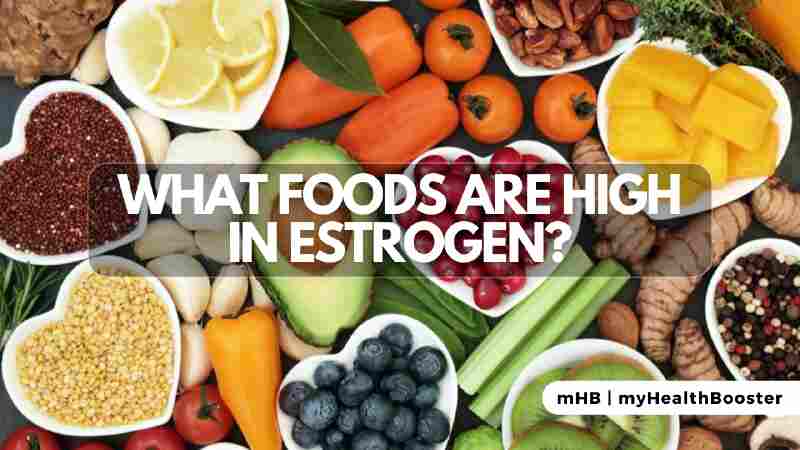The food we consume plays a significant role in influencing our body’s hormone production, with some foods containing compounds that imitate or interact with hormones. Estrogen, a vital hormone, is found in various foods, impacting individuals differently based on their health conditions. This article explores foods high in estrogen, their potential benefits, associated risks, and the importance of consulting a healthcare professional for personalized advice.
Sources of Estrogen in Foods
- Phytoestrogens, plant compounds that imitate estrogen, are present in vegetables, fruits, legumes, grains, animal products, and herbs.
- Animal estrogen, found in products like eggs and milk, originates from the animal’s hormone-regulating body parts.
Phytoestrogens and Animal Estrogen
- Phytoestrogens act as weaker versions of natural estrogen when processed by the human body.
- Animal estrogen, prevalent in eggs and milk, is produced in the animal’s ovaries or glands that regulate hormones.
Estrogen-Rich Foods
- Plant-based diets are generally associated with higher estrogen levels, although research is debated and influenced by factors like ethnicity and location.
- Foods known to increase estrogen include dairy, nuts, seeds, legumes, fruits, vegetables, and grains.
Benefits of Estrogen-Rich Foods
- Estrogen plays a crucial role in developing sexual and reproductive organs, regulating bone health, impacting the menstrual cycle, and influencing various bodily functions.
- Increased phytoestrogen levels may contribute to improved bone health and lower the risk of conditions like osteoporosis.
- Some studies suggest a link between higher estrogen intake and a reduced risk of breast and prostate cancer.
Risks and Outlook
- Debates surround the benefits and risks of estrogen-rich foods, with studies often lacking universality.
- Caution is advised when using diet to influence hormone levels, and individuals at risk should consult with healthcare professionals.
Growth Hormone in Adults
- Human growth hormone (HGH) produced by the pituitary gland regulates various bodily functions, including metabolism, bone growth, and muscle growth.
- As individuals age, natural HGH production decreases, prompting interest in synthetic HGH treatments to counteract aging effects.
Uses and Risks of Growth Hormone Treatment
- Growth hormone treatment is administered to adults with deficiencies caused by tumors, radiation, or surgery.
- Risks of HGH treatment include swelling, joint and muscle pain, carpal tunnel syndrome, diabetes, gynecomastia, and an increased risk of certain cancers.
Caution with Growth Hormone Use
- Approved HGH forms are available as injections, while HGH supplements in pill form lack evidence of effectiveness.
- Excess use of injections or supplements can lead to various side effects, emphasizing the need for cautious use and regular consultation with a healthcare provider.
Conclusion
Understanding the sources, benefits, and risks of estrogen-rich foods and growth hormone treatments is essential for making informed dietary and healthcare decisions. While certain foods may positively influence estrogen levels, personalized advice from healthcare professionals ensures safe and effective choices. Caution is particularly emphasized regarding growth hormone use, urging individuals to prioritize alternative health-improving strategies like a balanced diet and regular exercise.
References
- Aging Male: “Is there a role for estrogens in the maintenance of men’s health.”
- Breast Cancer Prevention Partners: “Phytoestrogens.”
- International Journal of Gynecology and Obstetrics: “Estrogens in Food: The Almond Mystery.”
- Johns Hopkins Medicine: “Estrogen’s effects on the female body.”
- Mayo Clinic: “Human Growth Hormone (HGH): Does It Slow Aging?”
- National Institute of Environmental Health Sciences: “The pros and cons of phytoestrogens.”
- Phytoestrogens: “A Review of the Clinical, Epidemiological, and Mechanistic Evidence.”
- The Journal of Clinical Endocrinology & Metabolism: “Potential Health Benefits of Dietary.”
- UCLA Center for Human Nutrition: “Vegetables, fruits, and phytoestrogens in the prevention of diseases.”
- University of Florence: “Phytoestrogens: food or drug?”
- University of North Carolina Asheville: “Soy foods: are they useful for optimal bone health?”
- University of Pittsburgh, Graduate School of Public Health, Department of Epidemiology: “Estrogen and bone health in men and women.”
- WebMD: “Human Growth Hormone (HGH).”
